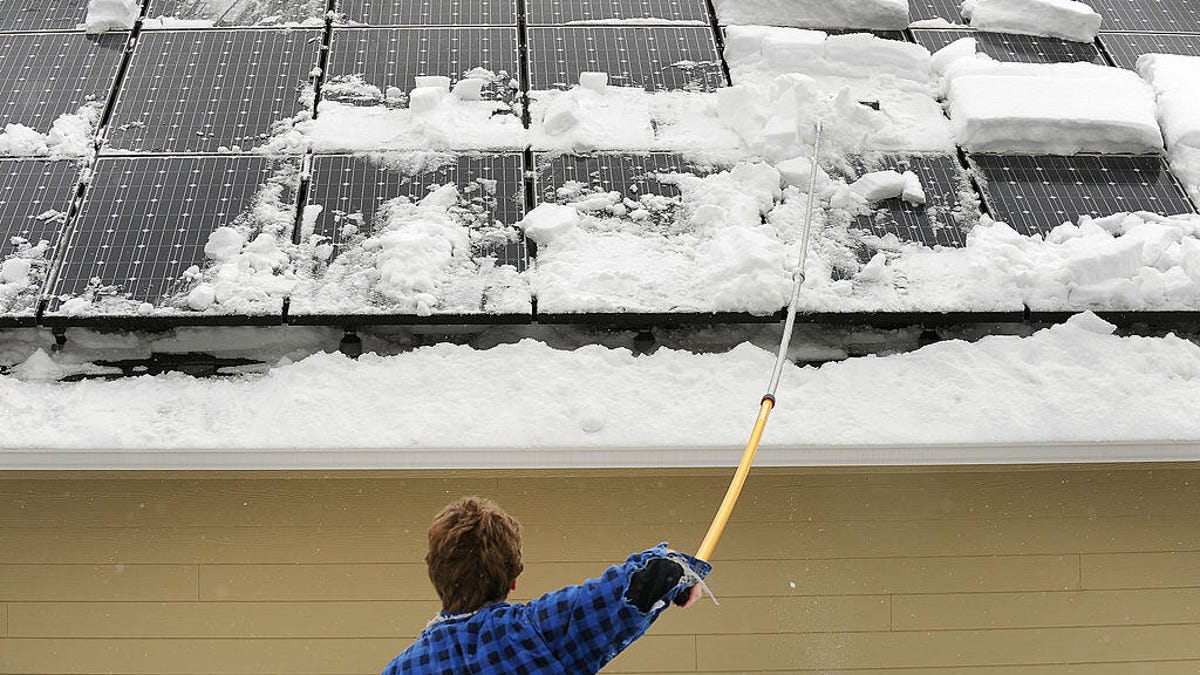Does Homeowners Insurance Cover Solar Panels?
Your panels would likely be covered, but you'll want to double check to make sure you have insurance before you need it.

Solar panels are exposed to the elements. It's important to know whether your homeowners insurance covers any damage to them.
You're getting solar panels, and solar panels are attached to your home, so they're covered by homeowners insurance, right?
Well, maybe.
Don't make an assumption about what is and isn't covered. Solar panels are a big investment, and you want to make sure you're protecting them properly. Storms or extreme weather can wreak havoc on the panels, but insurance coverage can save you from a big repair bill.
Can solar panels save you money?
Interested in understanding the impact solar can have on your home? Enter some basic information below, and we’ll instantly provide a free estimate of your energy savings.
Here's what you need to know about how homeowners insurance does -- or doesn't -- cover solar panels.
Does homeowners insurance cover solar panels?
If you're buying the solar panels (rather than leasing them), and putting them on your roof (rather than your yard or some other structure), your homeowners insurance will most likely cover the panels, according to Beth Swanson, a licensed insurance agent at The Zebra, an insurance marketplace.
But there's one big caveat: You'll want to check your coverage levels. For most homeowners, their policy covers the replacement cost of their home at the time they bought it or took out the policy. If you then add a $20,000 solar array on top, that might exceed the amount of money you have in your coverage policy.
Swanson advises that you reassess your policy to make sure you have enough coverage to include the large expense of a solar system. (This also applies to any big renovation that significantly increases the value of your home.)
But generally speaking, solar panels will be covered for all the same types of damage your roof is covered for, Swanson said, such as storm damage. If the installation of your solar panels causes a leaky roof, however, that might not be covered; in that case, the solar installer is likely on the hook for fixing the damage they cause to your roof.
How do solar panels affect the cost of home insurance?
If you need to raise your coverage limit to cover the value of your solar panels, that is likely to increase your monthly premium, Swanson said.
But there are some ways to counteract that. You could offset the increase by bundling in other types of insurance, like auto, if you haven't already. And you could also consider raising your deductible in exchange for a lower premium, but be careful not to raise your deductible beyond what you can afford.
How to get insurance coverage for my solar panels?
You may find out your solar panels aren't covered by your existing policy. If that's the case, start by talking to your existing insurance company to see what your options are, Swanson said.
If your existing insurance provider doesn't have any options, start looking for other insurers. "I always recommend that people shop around," Swanson said. You might be able to find a different homeowners insurance provider that covers solar.
And if you end up needing a separate policy just to cover your solar panels, your solar installer may offer a solar-specific insurance policy. Your panels may also be covered by a warranty from the manufacturer.
What damage can happen to solar panels?
Solar panels, by design, are exposed to the elements. This allows them to soak up the sun, but also exposes them to damage. Extreme weather like hail can damage the panels, as could a fallen tree or branch.
If your panels get damaged, and they're covered by insurance, you'll want to file a claim right away. This can usually be done online or through an app from your insurance company. "You can make a claim without even talking to anybody," Swanson said. You'll need to provide personal details and information or photos describing the damage. "Making a claim is a lot easier than people expect it to be," she said.



